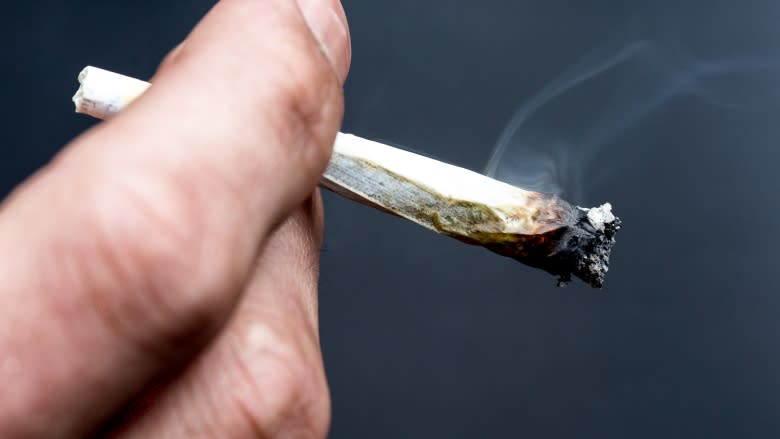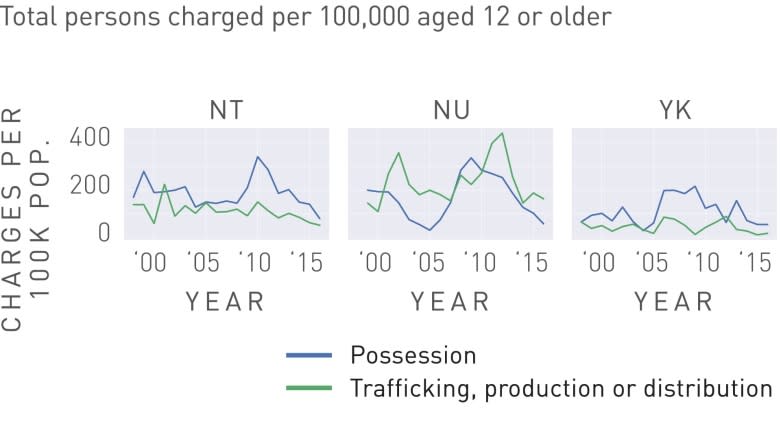Pot charges continue downward trend in N.W.T., Nunavut, stay the same in Yukon
RCMP in Canada's North are charging fewer people with marijuana offences, a year before the federal government plans to legalize the drug.
Police charged 29 people in the Northwest Territories with a marijuana possession offence in 2016, the fewest since 1998 and a 43 per cent decrease from the year before.
RCMP charged even fewer people with trafficking, with 19 people being charged last year.
In Yukon, police charged 18 people with possession and six with trafficking last year. That's the same number of people charged with possession, and two more than were charged with trafficking, in 2015.
In Nunavut, 16 people were charged with marijuana possession and 45 with trafficking in 2016, both decreases from 2015.
The figures come from Statistics Canada's annual report on police-reported crime across the country. Nationally the number of cannabis-related charges declined, continuing a downward trend underway since 2011.
For the Northwest Territories, the rate of marijuana possession charges for people aged 12 and older was 80 people per 100,000. In Yukon the rate was 56 people per 100,000 and in Nunavut it was 58 people per 100,000.
Across Canada, the rate was 122 per 100,000 for the same charge.
The rate of charges per 100,000 people in the North tends to skew higher than the provinces, but that's because of relatively low population in the territories.
The three territories are engaged in community consultations about how to handle the regulation of legal marijuana, set to happen in the summer of 2018.
In terms of overall crime, statistics show different trends in each territory. Crime decreased in the Northwest Territories, remained the same in Yukon and increased in Nunavut.
The Crime Severity Index, which measures the severity of police-reported crime, showed a 10 per cent decrease in the Northwest Territories. In Yukon it dropped by less than one per cent and in Nunavut increased by four per cent.



